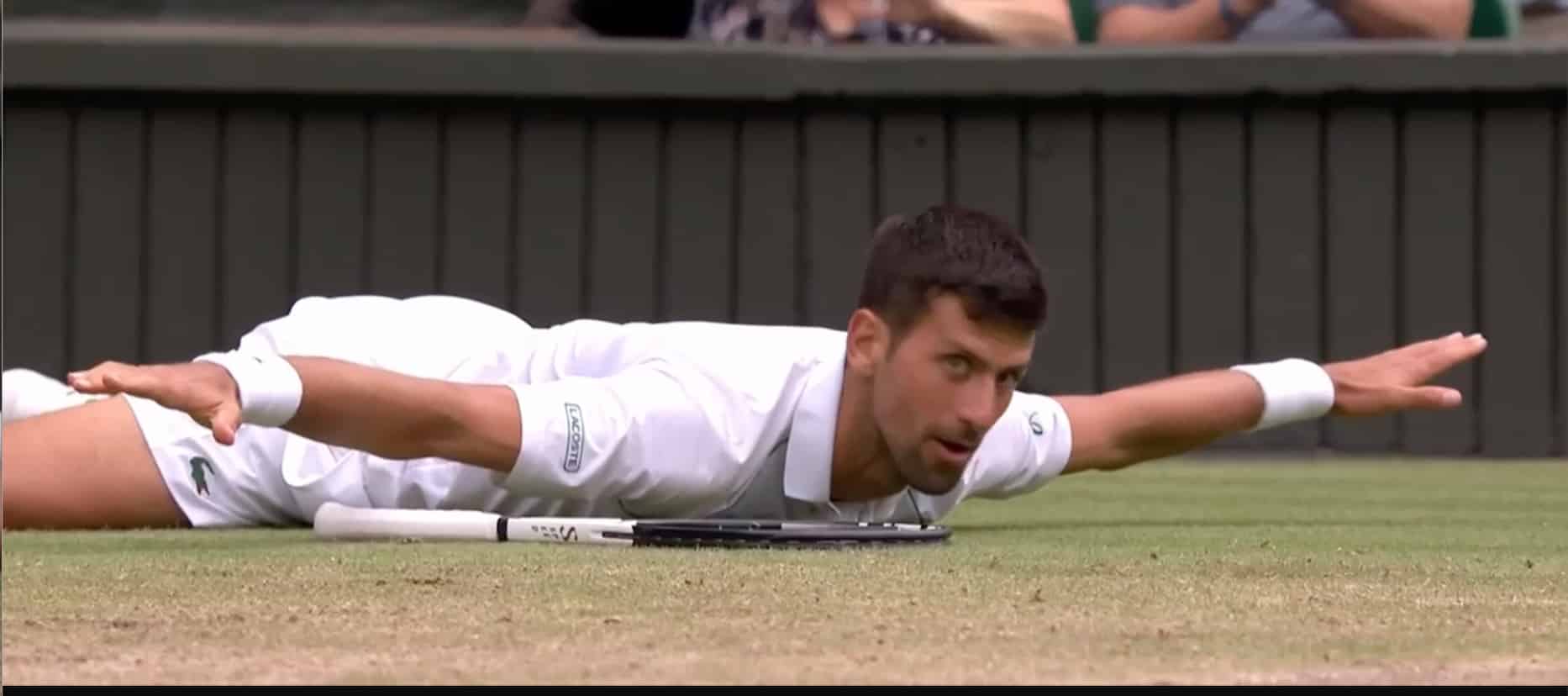No need to find some big meaning in it, but over 10 sets, the two best of the new class could not overcome the last two of the old class, so maybe there really is something to the idea that it was a class to end all classes.
No, sir. Nothing of the sort. First of all, it would be inaccurate and we live by fairness and accuracy. In which regard, right off, let us correct last weekend’s paper and admit we erroneously announced a matchup between the bright star of New Jersey Amanda Anisimova and the Riviera’s own Alizé Cornet, whereas what was due (and is now past) was Miss A. against another French star, Harmony Tan. Also past is the match Miss Cornet in fact played against Australian Ajla Tomljanović.
All this is in the past, and whether or not it is still with us or not even past[1] is neither here nor there because the semis will involve other lasses. Young Amanda put up a good show against Simona Halep, who looks so strong and consistent that she may well repeat her win here in 2019, but it is not ours to predict, given our lousy record in this area.
But the deeper inaccuracy in our lede is elsewhere. Tennis, no less than football, is not a matchup between the old guys and the young guys, and when fate throws up such a meeting, so what?
Since 2003, no one not named Federer, Nadal, Djokovic, or Murray has won this most prestigious of all tournaments. Some view the U.S. Open as the true World Series of Tennis, but Wimbledon — formally The Championships — is the oldest and most revered.
The grass is greener here, at any rate. And this year, yesterday and on July 4, it looked like the spell, if you want to call superior talent a spell — and in fact, neither Mr. Pleszczynski nor I, sticklers for correct usage, want any such thing — would be broken this year. A young Tyrolean named Jannik Sinner was leading by two sets to zero against the mighty man of Belgrade on Centre Court, and then he slipped and hurt his ankle. But he played on. And Novak Djokovic, who had been a little off his game in those first two sets, jumped over the net to come to the younger man’s assistance. And proceeded to raise his game and take the match in five.
The century’s dominant four players were down to three. Roger Federer was present but not playing, due to a slower-than-expected recovery from knee surgery; he said he hoped to make it next year. Andy Murray played with his characteristic combination of pugnacity and brilliance — and a rebuilt hip. He lost in the second round.
Rafael Nadal, who has won the Slams in Australia and France this year, prevailed against the young Californian, Taylor Fritz; he closed the fifth set tiebreak, in a kind of inevitability, with a serve-and-forehand winner — the same combination he had used to take the fourth set and thus force a decider — as Djokovic had done. Nadal plays on a foot he can barely feel due to a rare degenerative ailment and there were worries, when he called a medic early in the match, that he would not be standing at the end. But he was.
It is possible, though unlikely, that neither Nadal nor Djokovic, following their marathon quarter-finals, will win his semi-final match, but the point is elsewhere. The point is that the verse from Rudyard Kipling’s “If” at the entrance to the club’s main building is there to remind visitors — and players — of a stanza further along in the poem:
If you can force your heart and nerve and sinew
To serve your turn long after they are gone
And so hold on where there is nothing in you
Except the Will which says to them: “Hold on!”
[1] dixit William Faulkner
























